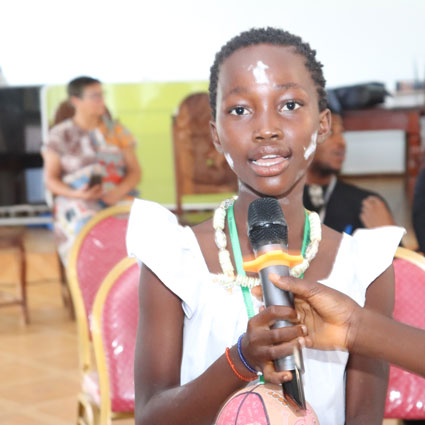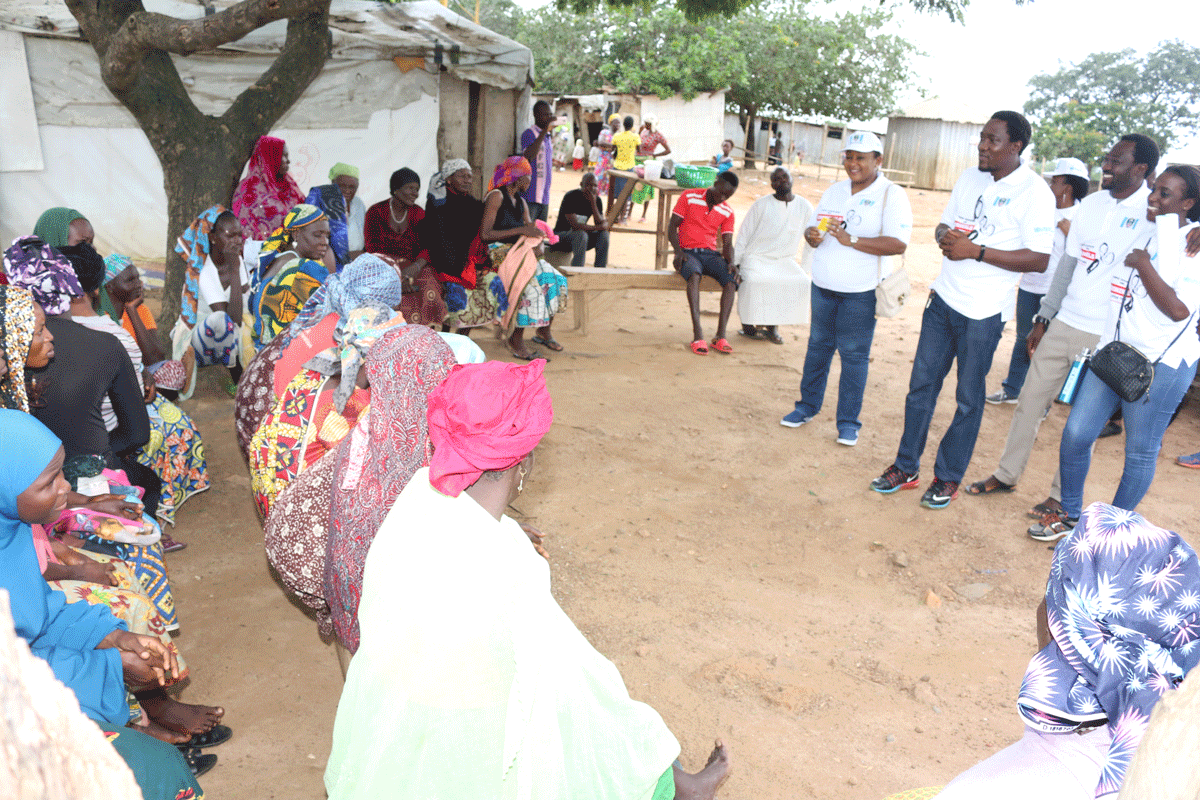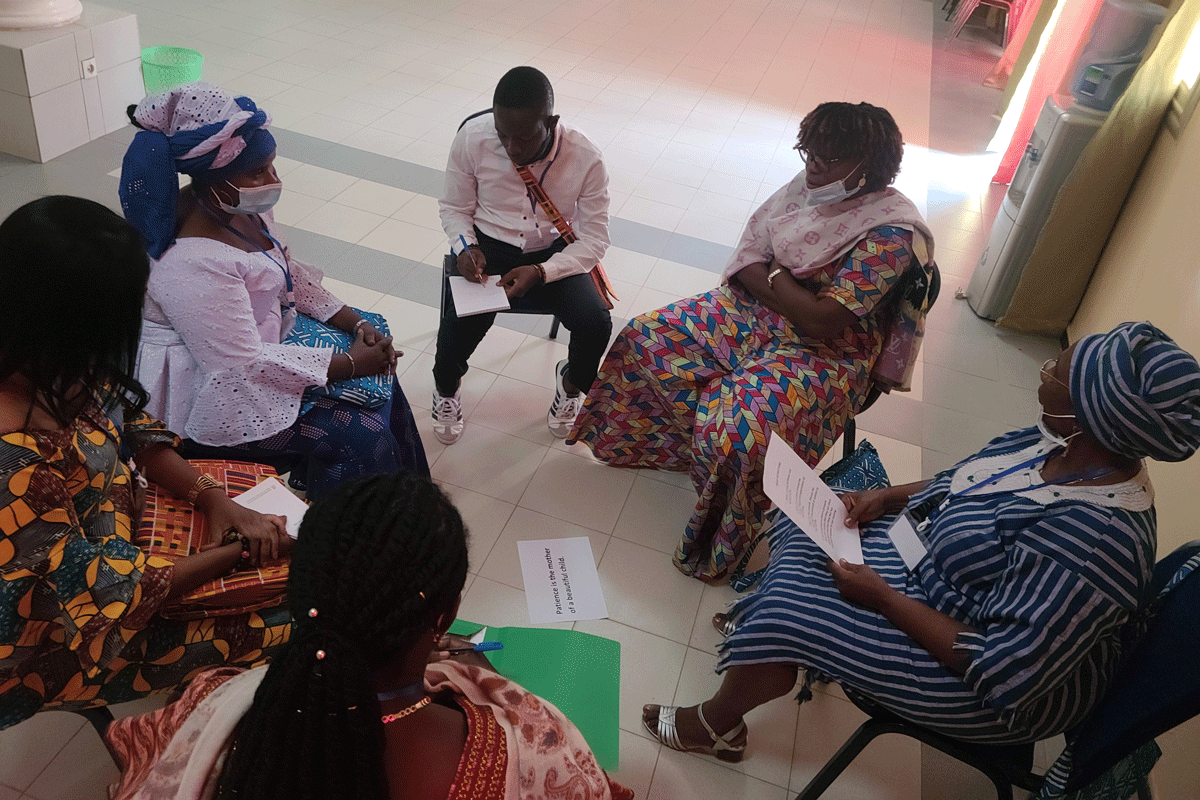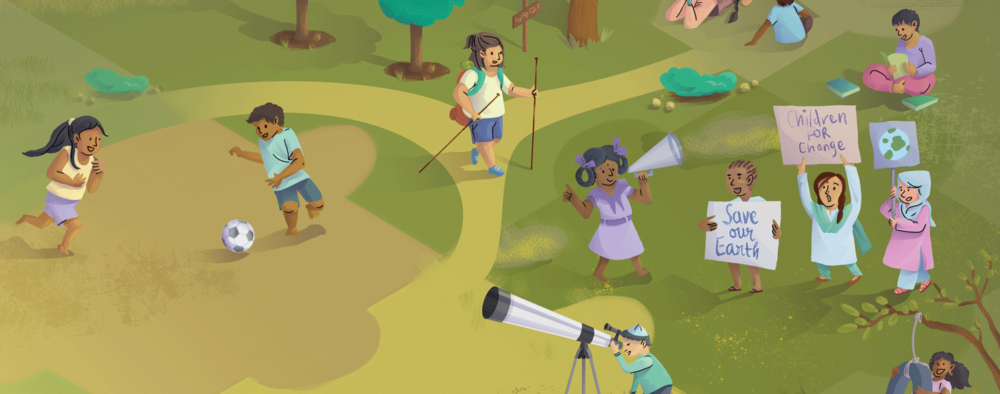
Education
Education, Youth power
This blog post was written by Kolawole Olatosimi Adenola, National Coordinator and Senior Program Officer at Child and Youth Protection Foundation in Nigeria, and Corey Oser, Vice President of Programs at Global Fund for Children.
“How do you define community?” This was the opening question for the topic that GFC’s Partner Advisory Group (PAG) focused on last month. Responses started flowing: “A live space of interaction.” “A sense of belonging and connection.” “Communities are not homogeneous.”
After consultations with some of our community-based partners, GFC launched PAG in February 2022 with a group of 13 longtime partner leaders to discuss topics we are grappling with, while fostering connections.
Last month, we explored community-driven systems change. GFC decided to center this as one of the guiding stars in our new strategic vision, as it is an area increasingly important to many of our partners. Some of them are trying to change social norms and recognize that new approaches are needed to engage the communities they work with. Others want to be more grounded in their constituents’ dreams for change and less driven by projects.

PAG member Kolawole Olatosimi Adenola, National Coordinator and Senior Program Officer at Child and Youth Protection Foundation (CYPF) in Nigeria, shepherded the conversation.
Kolawole: I offered to facilitate the discussion last month because as the Coordinator at CYPF, I supported my organization in implementing programs in communities that we believed were good for them but that in the end had little impact. Most of the time, the communities had little or no contribution to the development of the actions. My ideas about community interventions changed when GFC gave me the opportunity to learn more about community-driven development at a ten-day workshop on the topic hosted by Tostan in Senegal. Having a deeper understanding of community-led development has also redirected CYPF’s focus; we are currently creating awareness about the importance of community-led development within civil society organization networks and also building the capacity of other organizations through experience sharing and development of best practices.
We asked our partners in the PAG meeting to talk about what community-led development means to them. They shared: “People are involved in the process of making their lives better.” “People are active leaders and participants in change; the change is based on their dreams. The change is not an extractive process, it creates inclusion and leadership.” “We have groups of young people leading projects after they have experienced processes with us.” “We are recognizing people as experts of their own realities.”
Kolawole: As a longtime GFC partner, I was also curious about how the GFC staff learns about how their prospective partners interact with their communities. They shared some of the questions in their minds, such as: “Who decides, implements, or measures?” “Is it a listening organization; do they have the humility to listen to the most vulnerable or do they see themselves as ‘experts’ who are defining the needs of the community?” “How are partners engaging with their communities? What is the nature of connection and interaction?” “What is the depth of change, independent of funding?”
This conversation led us to the topic of why community-led development is important to the process of social change. We listened to views from the group, such as: “Communities take charge of change, recognizing that multiple areas of discrimination affect them and others around them.” “Community-led change aims to create community within communities – we are creating and strengthening communities through complicated dialogue.”

Kolawole: I agree with other partners that the best way to ensure the sustainability of interventions is through a community-led development process. I also believe that funders should have a better understanding of how community-led development can have a great impact on social change. This process requires longer and flexible funding. Therefore, funders should look at their funding systems to re-strategize in such a way that they will be able to support partners to implement sustainable community-led development.
As Vice President of Programs at GFC, I was curious to know what advice partners had for GFC’s role in fostering community-led change. They shared ideas, such as: “GFC can look at learning and unlearning of partners and support more capacity on community-led development with partners.” “Once partners really understand this, there can be a ripple effect as they influence other organizations in their context.”
They also advised us to strengthen the capacity of community-based organizations to negotiate with funders to appreciate the value of working with communities to design change activities, rather than deciding what they think is best for them. They encouraged us to support our partners to see evaluation as a process for themselves and their constituents and not as a requirement for donors. Importantly, they suggested that we help nurture a community of donors willing to shift power and challenge harmful practices that do not support truly community-led change.
As our PAG partners speak, it is clear we are on a journey to listen, learn, and influence where we can. I am grateful that we have people in our network like Kolawole who are advancing new ways of seeing relationships between organizations and communities and generously share their experience with others.
Header Photo: GFC partners from Sierra Leone and Liberia and GFC staff dance during a workshop held by Tostan. © GFC
